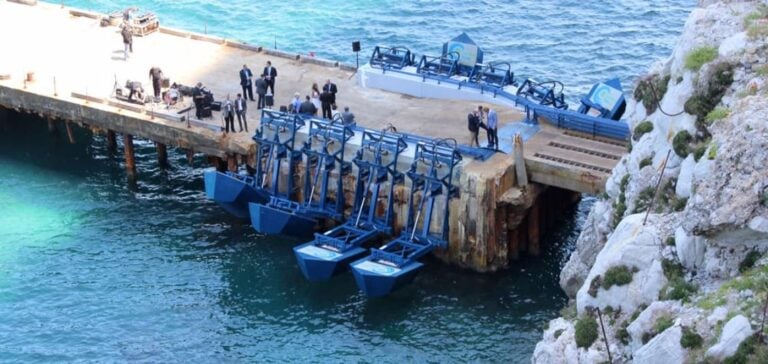Eco Wave Power Global AB (NASDAQ: WAVE), a specialist in onshore energy conversion, has obtained Nationwide Permit (NWP) 52 from the U.S. Army Corps of Engineers. This permit, essential for pilot renewable energy generation projects in aquatic environments, authorizes the installation of a unique hydropower system on port infrastructure at the Port of Los Angeles.
The planned installation consists of eight hydropower floaters attached to the piles of an existing concrete pier on the AltaSea site, a maritime innovation hub. Including the conversion unit, the system will feature two 20-foot shipping containers placed on the pier to convert mechanical energy into electricity. The project is expected to be operational by the end of the first quarter of 2025.
A pioneering project supported by strategic partners
In collaboration with Shell International Exploration and Production Inc., Eco Wave Power is committed to demonstrating the commercial feasibility of hydropower energy in the United States. This agreement, signed in April 2024, marks a strategic step in the diversification of marine energy sources, as the system now enters the execution phase.
Inna Braverman, CEO and founder of Eco Wave Power, emphasized the importance of this project: “This final permit represents not only a technological turning point but also a major opportunity for the adoption of hydropower energy in the global energy mix.”
Promising energy potential
According to the National Renewable Energy Laboratory of the U.S. Department of Energy, hydropower energy could produce more than 1,400 terawatt-hours annually, enough to power 130 million households. This untapped potential, combined with Eco Wave Power’s innovations, could redefine the landscape of marine renewable energy.
Thanks to this achievement, the project is also expected to pave the way for similar initiatives in other U.S. ports, solidifying the country’s position in the global energy transition.






















